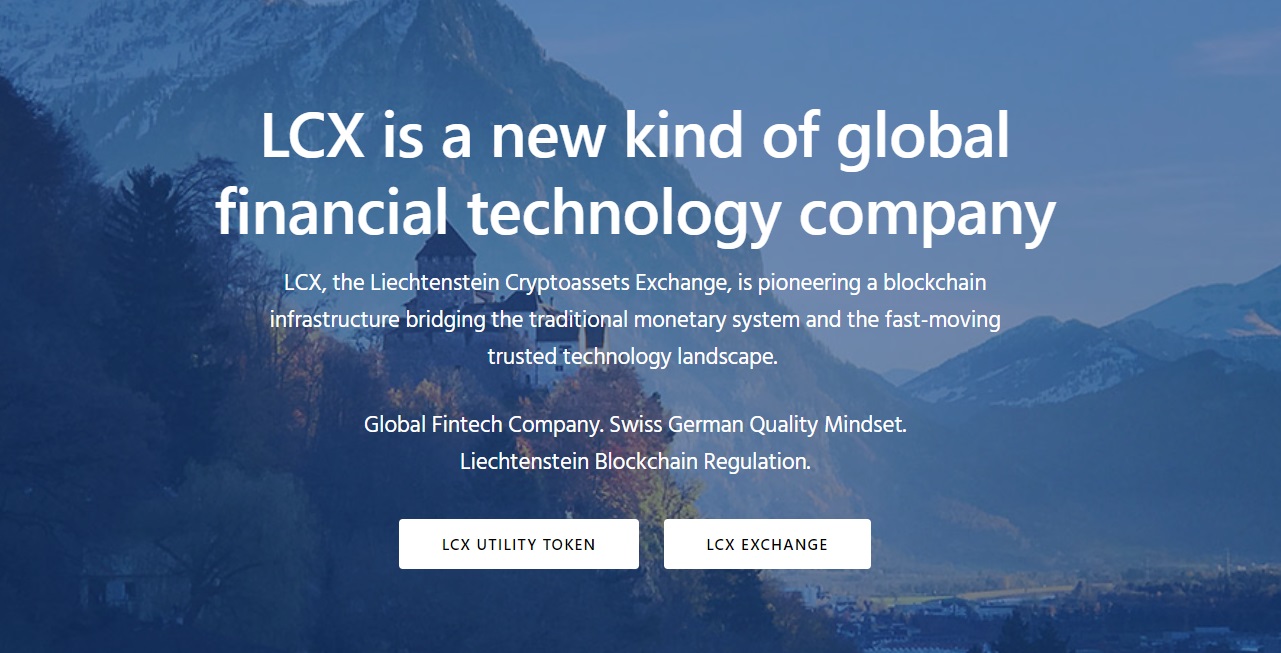
LCX Exchange

거래소 수수료
입금 방식
지원 암호화폐 (25)
LCX Exchange Review
What is LCX Exchange?
LCX Exchange is a cryptocurrency exchange registered in Liechtenstein. It has been up and running since 2018, and it also has offices inZug (Switzerland), New Delhi (India) and Chicago (USA).

Trading Volume
According to coinmarketcap.com, on the date of first writing this review (21 June 2021), the exchange had a 24 hour trading volume of USD 16.716.35. Needless to say, this is a very low trading volume for an exchange that has been active since 2018. If the number is true, we would not recommend anyone to start an account. We have followed up with LCX Exchange to hear if they have had issues with the Coinmarketcap tracking integration and we'll provide their answers here as soon as we receive them.
When we last updated this review on 2 December 2021, the 24 hour trading volume was USD 177,506.
Referral Program
LCX Exchange has a referral program in place for its users, through which existing users can refer new users and then earn a commission from the trading of the referred users. The referring user receives 50% of all the trading fees generated by the referred user, when the referred users upgrades to a paid LCX Pro Account. But even before that, the referring user get's LCX Tokens (100 LCX when the referred user registers). On the date of first writing this review (21 June 2021), 100 LCX tokens were worth USD 2.36.
You can sign up to the referral program here.

US-investors
LCX Exchange allows US investors on its exchange. So if you’re from the US and want to engage in crypto trading, you've come to the right place. Luckily for you, there are a wealth of other trading platforms like LCX which you can find on our Exchange List, you can sort the exchanges with our filters and find others accepting US investors.
For our readers who are wondering why so many exchanges do not allow US citizens to open accounts with them? The answer has only three letters. S, E and C (the Securities Exchange Commission). The reason the SEC is so scary is because the US does not allow foreign companies to solicit US investors, unless those foreign companies are also registered in the US (with the SEC). If foreign companies solicit US investors anyway, the SEC can sue them. There are many examples of when the SEC has sued crypto exchanges, one of which being when they sued EtherDelta for operating an unregistered exchange. Another example was when they sued Bitfinex and claimed that the stablecoin Tether (USDT) was misleading investors. It is very likely that more cases will follow.
LCX Exchange Trading View
Every trading platform has a trading view. The trading view is the part of the exchange’s website where you can see the price chart of a certain cryptocurrency and what its current price is. There are normally also buy and sell boxes, where you can place orders with respect to the relevant crypto, and, at most platforms, you will also be able to see the order history (i.e., previous transactions involving the relevant crypto). Everything in the same view on your desktop. There are of course also variations to what we have now described. This is the trading view at LCX Exchange:

It is up to you – and only you – to decide if the above trading view is suitable to you. Finally, there are usually many different ways in which you can change the settings to tailor the trading view after your very own preferences.
LCX Exchange Fees
LCX Exchange Trading fees
Every time you place an order, the exchange charges you a trading fee. The trading fee is normally a percentage of the value of the trade order. Many exchanges divide between takers and makers. Takers are the one who “take” an existing order from the order book. Makers are the ones who add orders to the order book, thereby making liquidity at the platform.
LCX Exchange charges what we call flat fees, meaning that both the takers and the makers pay the same fee when it comes to spot trading: 0.30%. These spot trading taker fees are above the global industry averages for centralized exchanges. Sure, industry averages have historically been around 0.20-0.25% but we now see new industry averages emerging around 0.10%-0.15%. According to Cryptowisser.com's latest empirical study, the industry average spot trading taker fees were 0.215% and the corresponding spot trading maker fees were 0.162%.
You can lower your trading fees with 50% by paying them with LCX-tokens though, as set out below:

LCX Exchange Withdrawal fees
Withdrawal fees are usually fixed and vary from crypto-to-crypto. If you withdraw BTC, you pay a small amount of BTC for the withdrawal. If you withdraw ETH, you pay ETH. The last time we did an empirical study of the BTC-withdrawal fees in the crypto exchange market, we found that the average BTC-withdrawal fee was 0.0006 BTC per BTC-withdrawal.
LCX Exchange charges 0.0005 BTC per BTC-withdrawal, which is below the global industry average (being 0.00059 BTC per BTC-withdrawal according to this report) and a quite competitive fee.
Deposit Methods
To trade here, you can deposit with cryptocurrency or use SEPA wire transfer. The main asset class you can deposit to LCX Exchange is cryptocurrency. However, if you really like LCX Exchange but you don’t have any crypto yet, SEPA transfers are commonplace at crypto exchanges and offer a safe and secure to deposit fiat onto a crypto platform like LCX. Use our Exchange Filters to easily see which platforms allow credit card deposits.
